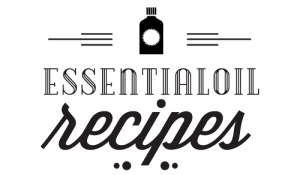Are there Essential Oils To Protect Your Respiratory System?
Looking for natural alternatives to protect your and your loved ones’ respiratory system? Then we dare to say there’s nothing better than the power of essential oils.
Essential oils are so good for so many things that sometimes is hard knowing where to start or how exactly use them. Here, however, we’ll focus on those oils to protect your respiratory system. Because yes, there specific essential oils and essential oil blends that work wonders to your respiratory system. Whether you want to stay away from infections, or are fighting one; essential oils can certainly help.
The best part, these oils are naturally crafted and when used correctly they can only do good to your body and overall wellness.
Now more than ever with COVID-19 around, a lot of people are turning to essential oils for help. And though there’s definitely no way to say they will cure you; this does not mean you cannot or should not make use of essential oils for respiratory and psychological support.
Essential oils can definitely help to soothe the throat, reduce inflammation, and clear away mucus. They have been used for these very reasons even before the novel coronavirus.
Essential Oils To Protect Your Respiratory System
Best Essentials Oils For Asthma, COPD, Lung Health, and Breathing Support
Millions of people suffer from asthma or other conditions that make breathing difficult such as Chronic obstructive pulmonary disease (COPD).
There is no cure for asthma, only prescription and over-the-counter, treatment can help people lead normal lives.
However, whit the growing popularity of essential oils, more and more people are seeking natural treatment options.
The medical community tends to view essential oils as a complementary alternative therapy rather than a medical treatment.
And it must be said, these oils should be used with caution, as there are no approved guidelines about dosage or strength. Instructions do exist, and if a person follows them, certain essential oils may help to treat asthma, COPD and lead to lung health and better breathing support.
When you suffer from chronic obstructive pulmonary disease (COPD), there are times when you’d do just about anything to breathe a little bit easier.
If you are looking to promote a natural healing response, essential oils are the way to go to help manage your COPD, naturally.
Substances in some essential oils may offer health benefits for people with asthma or with COPD. These essential oils include:
1. Roman chamomile
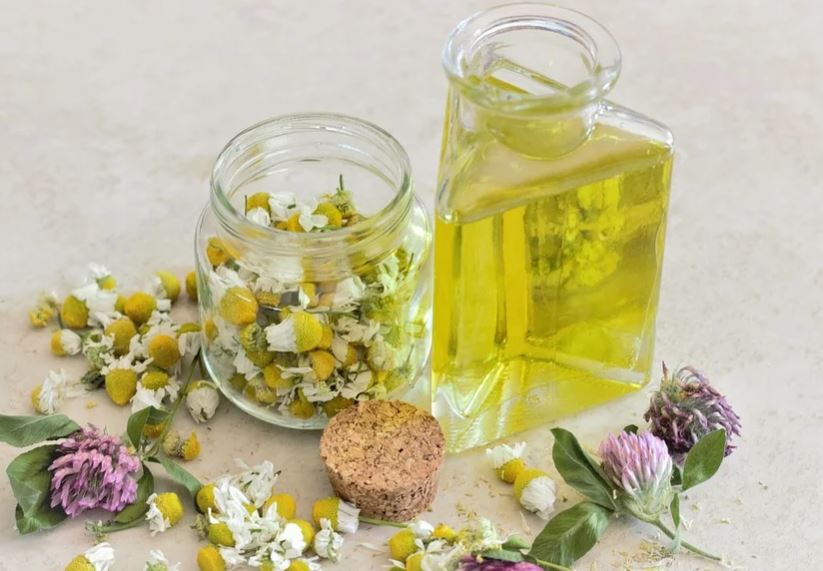
Chamomile is another essential oil that studies have shown to have anti-inflammatory properties.
chamomile can help relax the bronchi, which are the airways linking the windpipe to the lungs. As a result, it may also relieve coughing.
2. Lavender
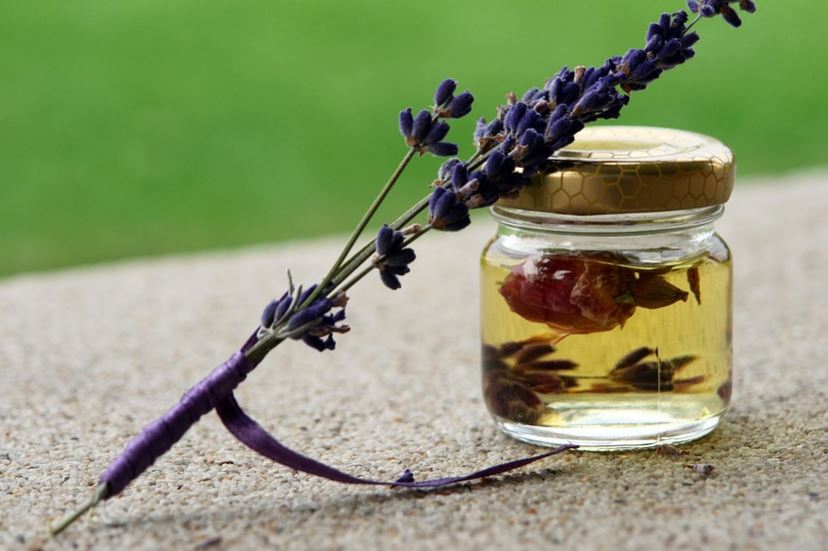
People use this essential oil for a variety of purposes. A mouse study published in 2014 showed that lavender essential oil has natural anti-inflammatory characteristics. It may help people with bronchial asthma by reducing the inflammation of the airways.
3. Peppermint
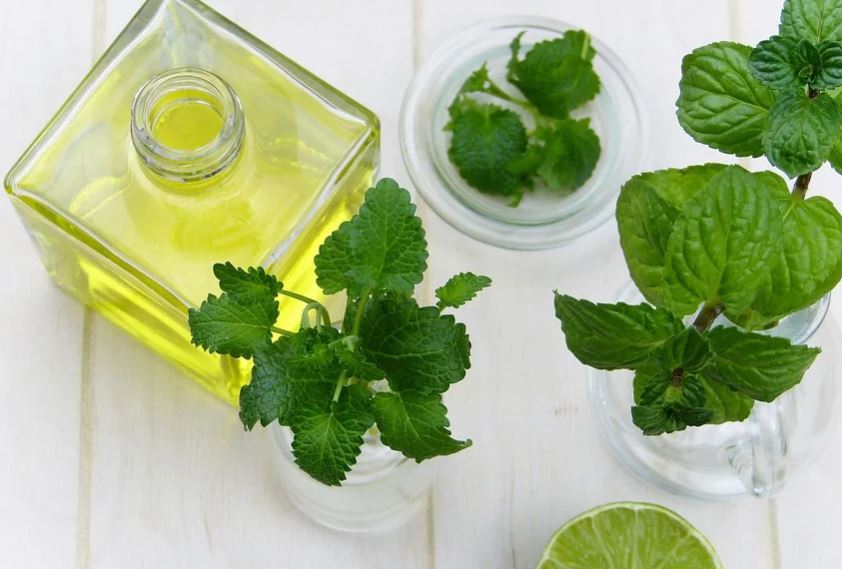
A substance called methanol is present in peppermint. Methanol can help relax and protect the airways. As a result, it may help people with asthma to breathe more easily.
4. Tea tree oil
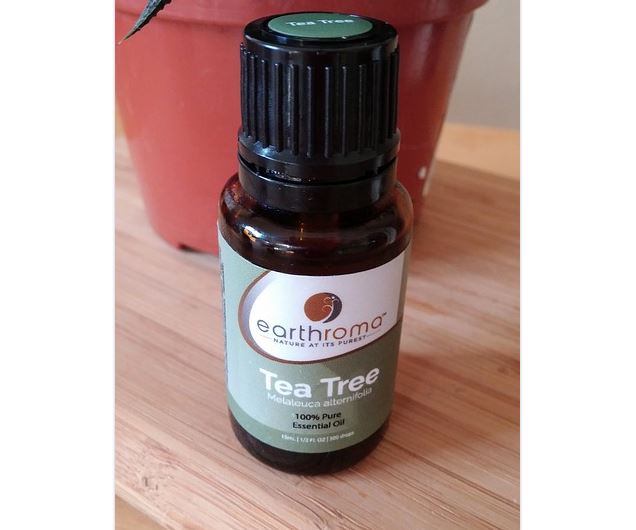
Tea tree essential oil is one of the most useful essential oils on the market. That’s because it’s an antibacterial, anti-fungal, antiseptic, and antimicrobial substance. It could also be considered an immunostimulant.
Because of this tea tree, essential oil can be effective at killing any bacteria that might be causing congestion in your sinuses.
5. Pistacia integerrima
Also known as karkatshringi, people in India use this plant to treat asthma, bronchitis, and other conditions.
Pistacia integerrima may help treat bronchial asthma. It may be beneficial due to its antihistaminic activity.
Additional oils that help relieve COPD symptoms include:
1. Eucalyptus
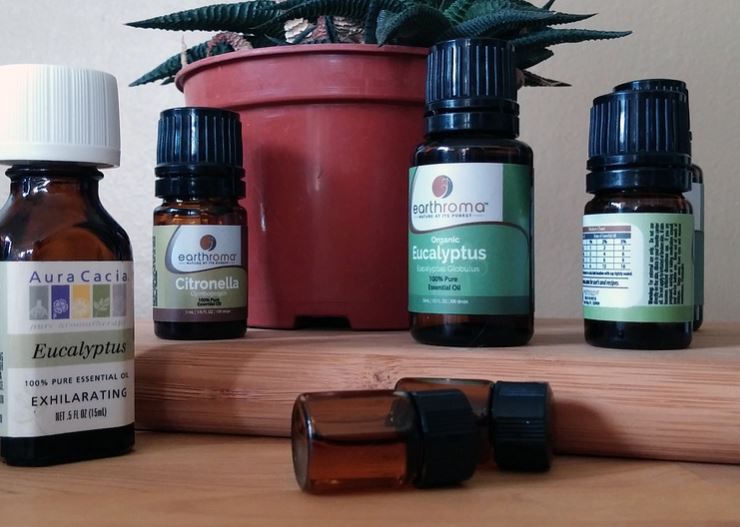
The breathing-related benefits of eucalyptus include its ability to act as a decongestant and expectorant and provide some level of pain relief.
Eucalyptus can also help COPD sufferers create a stronger immune system.
2. Bergamot
Bergamot is another essential oil that can help with COPD because its antibacterial and anti-fungal properties help protect against other health conditions.
3. Sweet Orange Oil
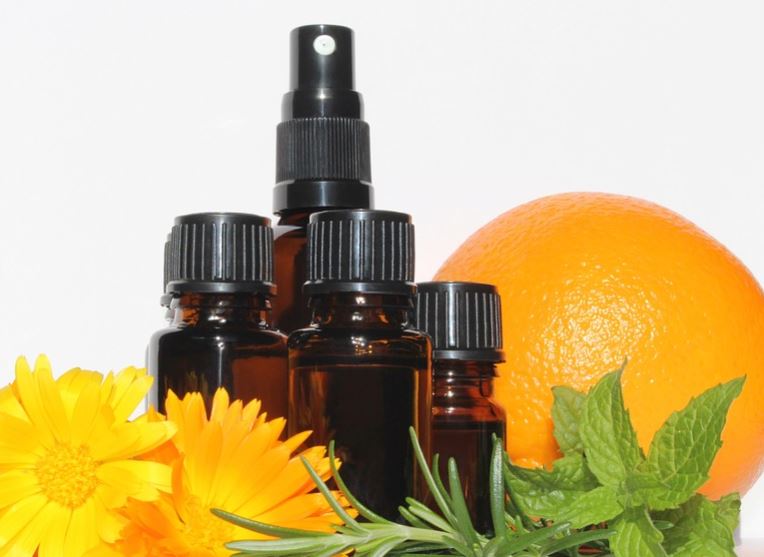
Orange oil has anti-inflammatory and anti-oxidant properties. In a study, orange oil demonstrated clear abilities to help with COPD.
In addition, its lovely scent has been shown to calm anxiety.
Best Essential Oils To Protect Your Lungs
Not being able to breathe correctly can be painful and if you’ve already given other treatments a shot why not try a holistic approach.
Anyone in need of breathing support can test different essential oils to help improve lung health.
So whether you have a respiratory condition or just congested airways; essential oils that can support respiratory system health are handy to have around.
By planning ahead, you could even prevent any nasty colds, sinus infections, or stuffy noses.
The next essential oils are decongestants, antiseptics, relaxants, and also known to ease colds, thus helping protect your lungs.
1. Rosemary essential oil

Rosemary is a common garden herb. Like eucalyptus, it contains the compound cineole.
A study published in the journal Cough found that cineole may help to break up mucus and reduce inflammation.
2. Oregano essential oil
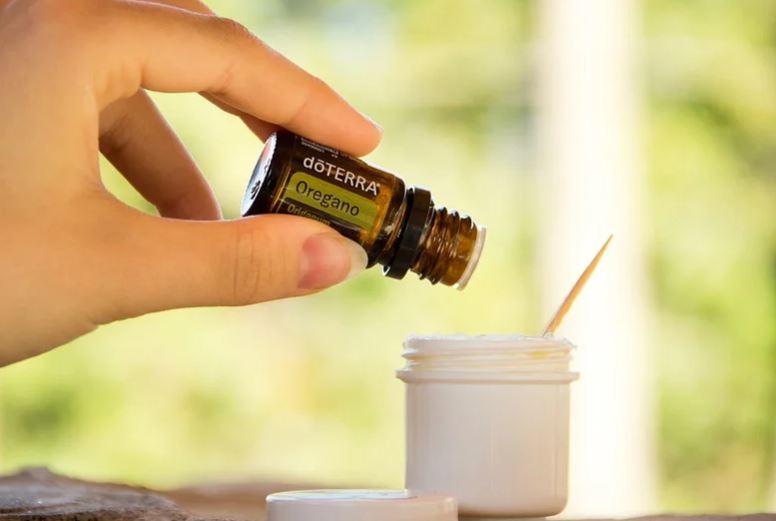
Oregano essential oil contains a high level of a potent compound called carvacrol. It may be helpful in eliminating or protecting against viruses and bacteria.
3. Frankincense essential oil
Frankincense is derived from the trees of the genus Boswellia. It has traditionally been valued for its effect on the respiratory system and has been used to treat coughs, catarrh, bronchitis, and asthma.
4. Geranium essential oil
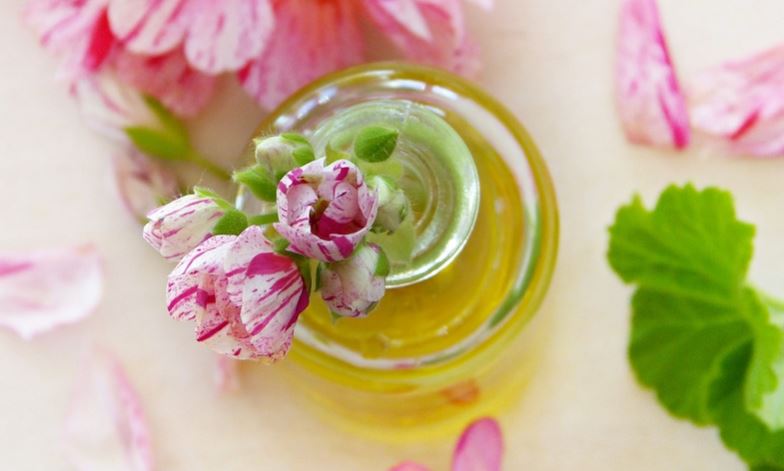
A study reported that a geranium extract called Pelargonium sidoides was an effective herbal cough treatment.
5. Cinnamon essential oil
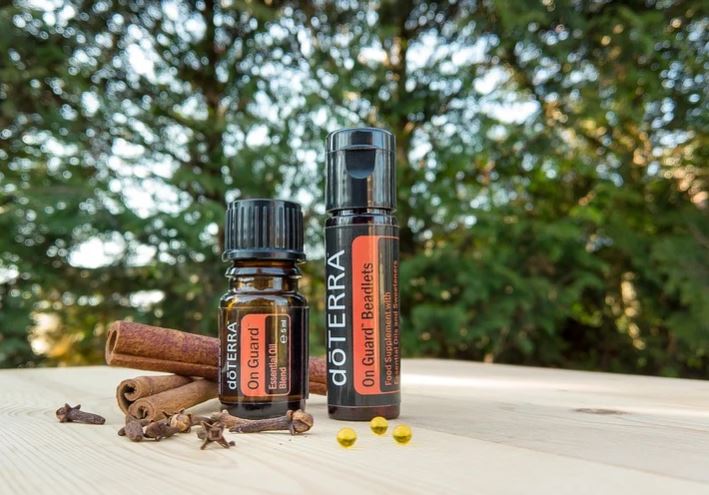
While a person may not associate this spice with medicinal properties, authors of a 2017 study found that cinnamon may protect against germs that cause respiratory problems.
Best Essential Oils For Asthma
Though it’s clear you can use certain essential oils for asthma relief, in this section we give you a few guidelines on how to use them.
The best time to use an essential oil treatment for asthma is between attacks. Check out the next tips to get you started:
- Mix 2 to 3 drops of essential oil in an ounce of carrier oil. Carrier oils are neutral oils that dilute the essential oil, helping a little bit go a long way.
- Spread the oil combination on your chest and inhale the scent for 15 to 20 minutes.
- Wipe clean.
- Repeat daily as needed.
There are a couple of methods or techniques if you will; you can try when using essential oils for asthma. You can pick the one you feel most comfortable with.
1. Dispersed oils in the air
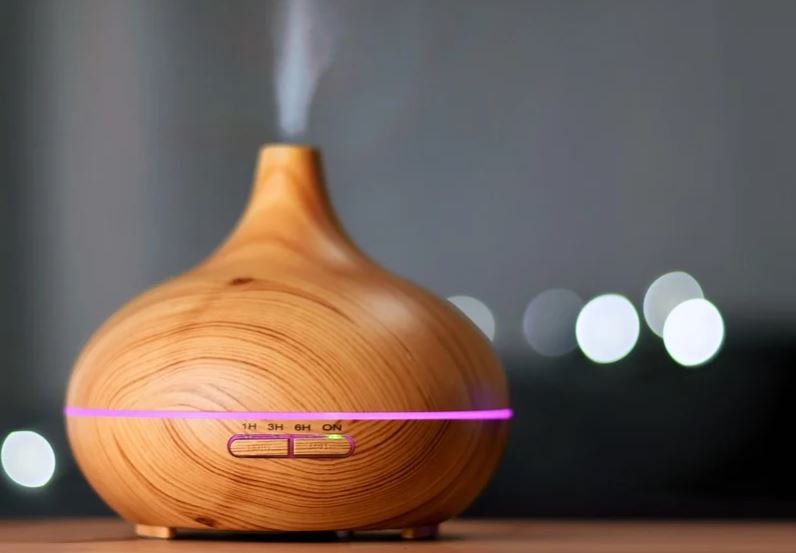
An essential oil diffuser or a humidifier can disperse the concentrated oil into the air. Keep in mind that it’s important to clean diffusers and humidifiers regularly to avoid mold growth.
2. Warm baths

If you have a large bathtub, you can also add a few drops of the diluted oil to Epsom salt and then pour the salt into a warm bath. Breathe deeply to enjoy the aromatic benefits of the essential oils in your bath. You also add Natural Candles With Essential Oils.
3. Inhale directly

Add a few drops of essential oil to a tissue and gently breathe in, holding the tissue near the face. Be careful not to get essential oil directly on the skin, as it can cause irritation.
Check out this idea on how to use lavender essential oils in a steam bath:
- Fill a bucket or bowl with steaming water.
- Add 2 to 3 drops of the lavender essential oil to the water and gently stir.
- Place your face directly over the water, being careful not to touch the hot water. Drape a towel over your head so it covers both your head and the sides of the bowl.
- Inhale deeply for 5 to 10 minutes.
- Take a break for a few minutes and then repeat 2 to 3 more times.
Best Essential Oils For Respiratory & Sinus Relief Blend
The effects of essential oils may help relieve symptoms associated with congestion; which is caused by colds, allergies, sinus infection, and the flu.
Most of the previous oils mentioned may relieve symptoms, such as congestion, inflammation and cough.
To use essential oils for sinus congestion relief, it is best to dilute them, then breathe in the scent. Do not swallow or ingest essential oils. Using undiluted essential oils topically can cause irritation and inflammation and ingesting essential oils can be dangerous.
Knowing how to exactly deal with or how to combine essential oils can be tricky as there is trained aromatherapist who are certified to make mixes and matches.
If you want oils for fast relief of sinus congestion, check out the next sinus relief blend you could try in a rollerball, in a room diffuser, or in the bath.
Ingredients:
4 drops Lemon oil
4 drops Peppermint oil
5 drops Lavender oil
6 drops Eucalyptus oil
Droppers & empty containers
Directions:
For bath and skin applications, dilute the mixture with 1 to 2 ounces of carrier oil, grape seed, sweet almond, or jojoba.
Additionally, if you have sinus congestion, make sure to avoid food that may increase mucus production and drink plenty of fluids.
